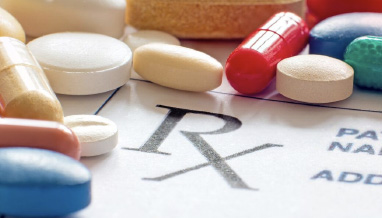Mapping Human Microbiome Drug Metabolism by Gut Bacteria and Their Genes
By Katie E. Golden, MD

One of the biggest challenges in modern treatment of disease is the degree of variation in an individual’s response to drug therapy. Despite the rapidly developing pharmaceutical industry, researchers and clinicians still struggle to predict a particular patient’s therapeutic response, side effects, or even toxicity from oral medication. There is mounting evidence to suggest a significant contribution of the microbiome to drug metabolism, however we still know very little about the mechanisms by which our intestinal bacteria influence the modification of the drugs we take every day.
In a recent study published in Nature by Zimmerman (et.al)1, researchers begin to uncover how intestinal bacteria chemically modify prescription drugs. They assessed the capacity of 76 bacterial species to metabolize 271 orally administered medicines, and through genetic analysis and mass spectrometry, they were able to identify microbial-derived enzymes that chemically modify drugs in vitro. Their results offered some of the first concrete connections between gut bacterial communities and interpersonal variation of drug metabolism.
The investigators selected oral medication from a wide array of clinical indications, and studied their absorption and metabolism by intestinal bacteria that were representative of the common species that colonize the human intestine. They found that two thirds of the assayed drugs were significantly reduced by at least one of the studied bacterial strains, and furthermore, that each bacterial strain metabolized between 11 and 95 drugs. After this discovery, they used metabolomic analysis to identify the molecular products that are responsible for the metabolism. For each bacterial strain, they identified compounds that were remarkably produced exclusively in the presence of specific drugs. They then developed a gain-of-function analysis to identify the specific gene products that confer the observed enzymatic activity involved in the chemical transformation of the studied medications. This systematic approach led to the first detailed illustration of the molecular mechanisms by which the intestinal microbiota encode gene products that directly contribute to drug metabolism. Researchers then validated these results in 30 microbiome-encoded enzymes by subsequent, more rigorous investigations of the metabolism of specific, commonly prescribed drugs (like steroids and common heart medication).
Their novel results establish a key genetic link between the intestinal microbiome communities and drug metabolism, laying the groundwork for understanding how we can manipulate and individuals microbiome in order to reduce toxicity and improve treatment response to important oral medications.

